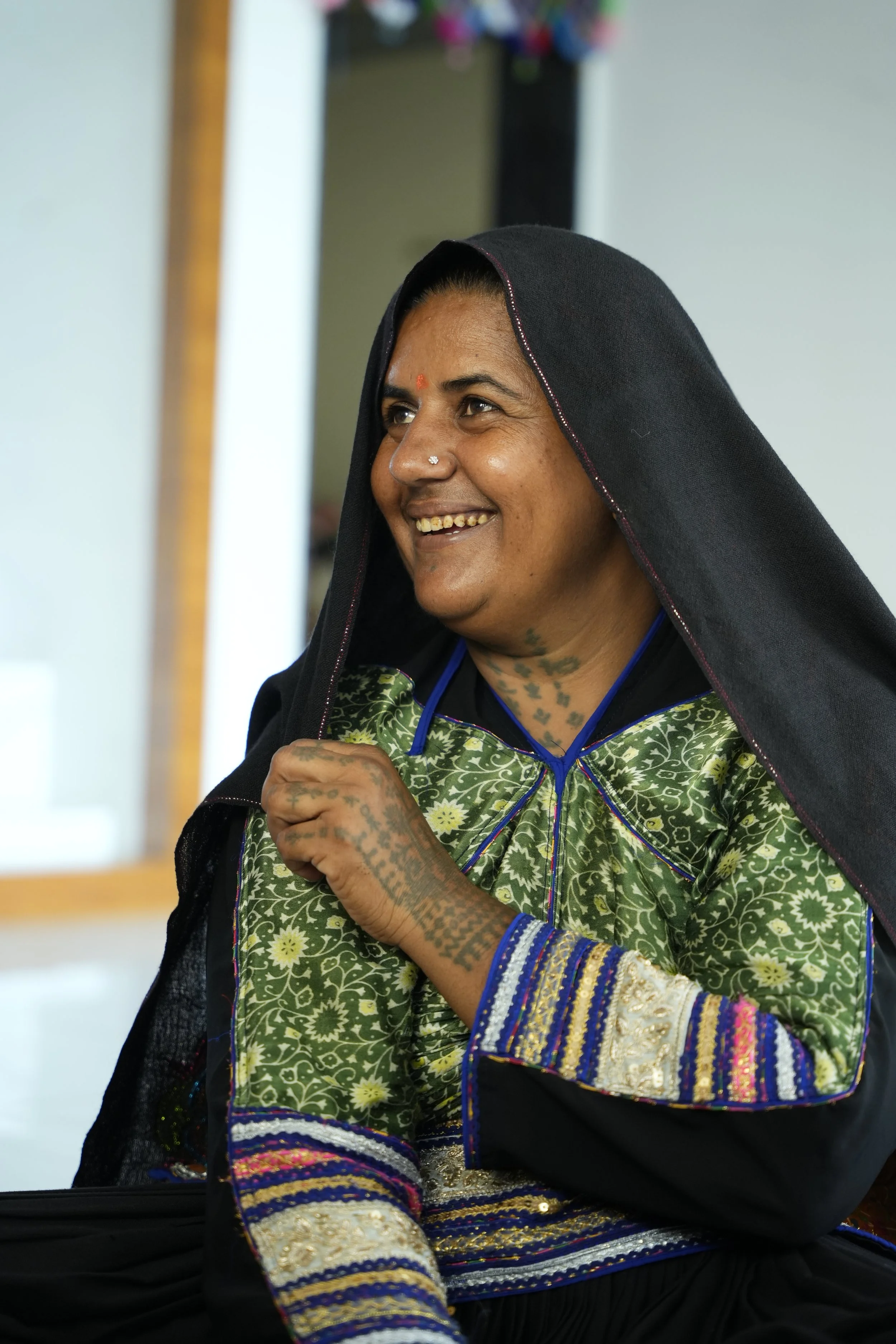Pabiben Rabari
Redefining Heritage through Hari Jari
In Kutch, Gujarat, where embroidery traditions have been a cultural expression and a cornerstone of dowry practices, Pabiben Rabari emerged as a trailblazer. Born in Kukadsar village, Pabiben faced a turning point when the Dhebaria Rabari community banned dowry embroidery, concerned that women were spending too much time embroidering, leading to late marriages. As women have long done in the face of adversity, Pabiben adapted. While preserving the colorful aesthetics of her heritage, Pabiben innovated Hari Jari, a groundbreaking technique combining machine-applied trims and ribbons that stayed inside the community embroidery ban but also redefined the artistic boundaries for women in her community.
At the heart of Pabiben’s innovation lies the iconic Pabi Bag, a product that symbolizes the transformation of Rabari stitching into a global phenomenon. Crafted through a meticulous process of layering bright trims on sturdy cotton bases, these bags showcase her ingenuity and dedication to craftsmanship. The Pabi Bag has traveled far beyond Kutch, featuring in Bollywood and Hollywood productions and establishing Pabiben as an ambassador of Indian folk art traditions.
Pabiben’s journey is also one of women’s empowerment. Through her cooperative, she supports over 300 women artisans, providing them with livelihoods while celebrating the resilience of Rabari culture. Her work brings the historic traditions of Gujarat’s embroidery to a broader, modern audience, proving that innovation can uphold legacy while inspiring change.










